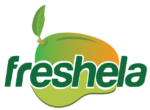
Russia relies heavily on avocado imports to meet its local demand. The reason is the country’s climate prevents it from growing avocados. Both the European and Asian portions of Russia experience freezing winters and mild summers. Temperatures can be as low as -30°C and as high as 30ºC while average rainfall in most parts is about 400mm per annum.
Majority of the avocados sold in Russia are found in supermarkets. Besides that, the biggest domestic market for fresh produce in the country is Food City Wholesale Market. Supermarkets are popular with the middle and high income consumers while smaller retailers are convenient for low income consumers. Street food markets and green grocers around Russia also trade in smaller volumes of avocado.
Russia Avocado Imports
Imports of avocado in Russia were valued at nearly 133 million US Dollars in 2021. Compared to the previous year, it is an increase of 8%. The sharpest climb was from 2016 to 2017 when the import value rose from about 21 million US Dollars to around 36 million US Dollars.
Here are the total values in import of avocados in Russia between 2012 and 2021.

Avocado Price in Russia per kg
The cost of a kilo of avocados in Russia can be between 130 Russian ruble (US2.02 dollars) and 200 Russian ruble (US3.10 dollars). This is based on the average import price per kg. This wholesale price has gone as low as 110 Russian ruble (US1.70 dollars).
Retail prices of avocado per piece vary from seller to seller. Customers can buy imported avocados all year round because they are sourced from nations with different harvest seasons. Market timing also determines the price range as late season avocados get a premium over early season avocados.
Being a seasonal fruit, avocado prices are adjusted based on supply. Russia imports a bulk of avocado in March up to August when they are in season. It brings in small amounts of avocado the rest of the year from countries whose season comes later.
Avocado in Russia
Russia is a high-value avocado market. The country takes in commercial varieties such as Hass and Fuerte. But it also brings in non-commercial green skin varieties. Many avocado consumers in Russia prefer Hass avocados that are small in size because of their lower cost and they consider them more delicious.
The logistical costs that come with importing avocados are a major factor in setting their retail prices. The closer the exporting country is to Russia, the cheaper the price for the consumer. Imported avocados that are large are still sold in the local market. Avocados exported to Russia are packed in both 4kg and 10kg cartons.
Avocado imports have to first go through the Federal Customs Service of Russia. They are then tested using certain food safety protocols set by the Federal Service for Supervision of the Consumer Rights and Human Well-Being. The government of Russia sets the requirements for importers of horticultural produce like avocado through the Ministry of Agriculture.
Cartons of avocado must be labeled according to guidelines determined by the Ministry of Industry and Trade. Russian language is required on the label. Labels must include the following information:
- Name and address of producer
- Brand or trademark
- Country of origin
- Type of avocado and grade
- Storage instructions and temperature requirements
- Gross weight and number of avocados per carton
- Shelf life
- Harvest year and packing date
Avocados imported in Russia must undergo the pesticide maximum residue level (MRL) tests done by government laboratories. They should not exceed acceptable limits according to Codex. The Federal Service for Veterinary and Phytosanitary Supervision is responsible for the control of pesticides residue on avocado imports.

